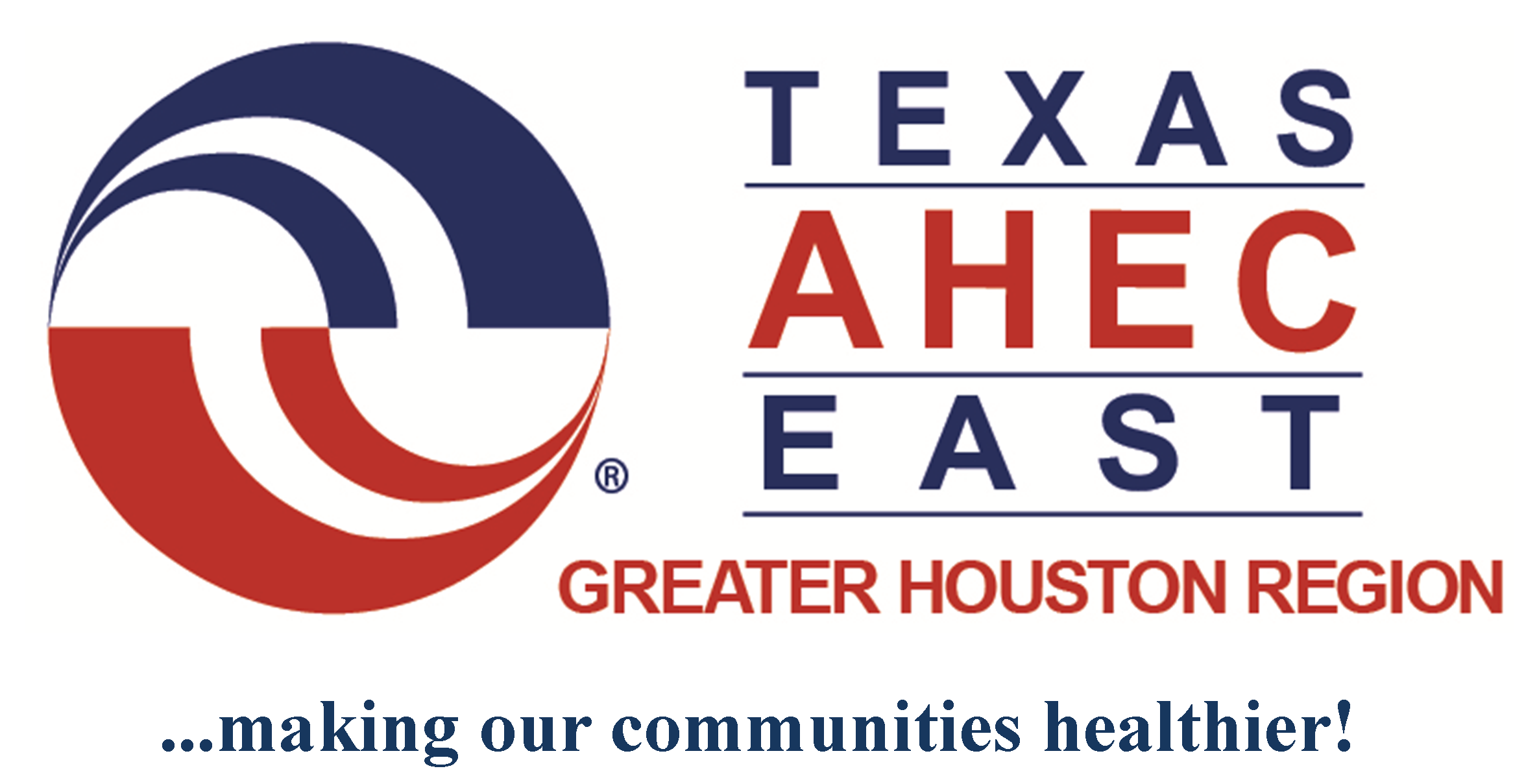About Us

The Texas AHEC East-Greater Houston Region is a non-profit organization that seeks to improve the health of our population, especially the underserved, by creating partnerships with and among community and academic organizations.
4014 Market Streeet, Suite W111
Houston, Texas 77020
Phone: 713-592-6411
Fax: 713-592-6411
AHEC Programming
Texas AHEC East began at the University of Texas Medical Branch in October 1991.
Area Health Education Centers (AHEC) were first proposed by the Carnegie Commission on Higher Education in the early 1970’s as a means of addressing the maldistribution of health professionals in medically underserved areas throughout the nation.
Today, 56 AHEC programs with more than 240 centers operate in 49 states and the District of Columbia. Approximately 120 medical schools and 600 nursing and allied health schools work collaboratively with AHECs to improve health for underserved and under-represented populations.
Most AHEC programs receive both local state funding and federal funding from the U.S. Department of Health and Human Services, Health Resources and Services Administration.
Current Programs
Health Careers Promotion
AHEC staff share with young students what health professionals do and how appealing a health career can be, and they provide encouragement and support to middle and high school students to learn about multidisciplined health career choices. Promoting health careers and preparing students for advanced learning improves the likelihood that those students will train to become the next generation of health professionals in their communities.
Community-Based Student Education
Texas AHEC East advocates community-based student education (CBSE) for health professions students, with an emphasis on providing primary care services for underserved populations. By facilitating health profession students’ clinical training and encouraging them to provide service to the community (service-learning), AHEC hopes to instill in the student a desire to return to a community setting to practice after graduation. AHECs place students in learning experiences with interprofessional healthcare teams in underserved communities. Ongoing Site Recruitment and Maintenance We recruit and maintain training sites by making site visits, assessing practices, assisting health professionals in their introduction and commitment to teaching and evaluating students. We make every effort to identify new learning opportunities, working collaboratively with health science center faculty to identify options in primary care and specialty learning opportunities
Professional Education and Support
Our Professional Education & Support Program is designed to recruit, train and retain a health professions workforce with a priority to meet needs of underserved populations.
Health Literacy / Consumer Information
Learning about prevention and treatment programs can lead to a new awareness and voluntary adoption of healthier behaviors. To foster healthy behavior development in individuals, groups, and communities, we disseminate articles and editorials through media sites and schedule community events to promote programs addressing community health issues such as diabetes, fitness, oral health, domestic violence, teen pregnancy prevention, mental health first aid, tobacco cessation, cancer awareness, substance abuse, child and adolescent health, injury prevention, nutrition and healthy eating. Additionally, we can help individuals seeking health care coverage with access to the health insurance marketplace and can help prepare coastal populations to plan for and survive hurricanes. The Community Health Worker (CHW), who develops a trusting, one-on-one relationship with community members, can help to improve health care cultural competence and encourage better self-care. We wholeheartedly advocate their value in communities and offer CHW training, collaboration, and continuing education. A recent CHW project was extremely successful in educating children and families about nutrition, exercise, food and eating habits, and in engaging the larger community in recognizing and adopting practices that encourage healthier lifestyles.
Community Health Systems Support
We facilitate community evaluation, discussion, and decision-making processes addressing access to primary health care. We have successfully implemented an evidence-based intervention project, through a community coordinated approach, to reduce hospitalizations and/or hospital charges among adult county residents for bacterial pneumonia, congestive heart failure, angina and diabetes. We collaborated with county-based organizations to maintain and coordinate activities for a Care Van, resulting in direct access to health, dental and related services and information
